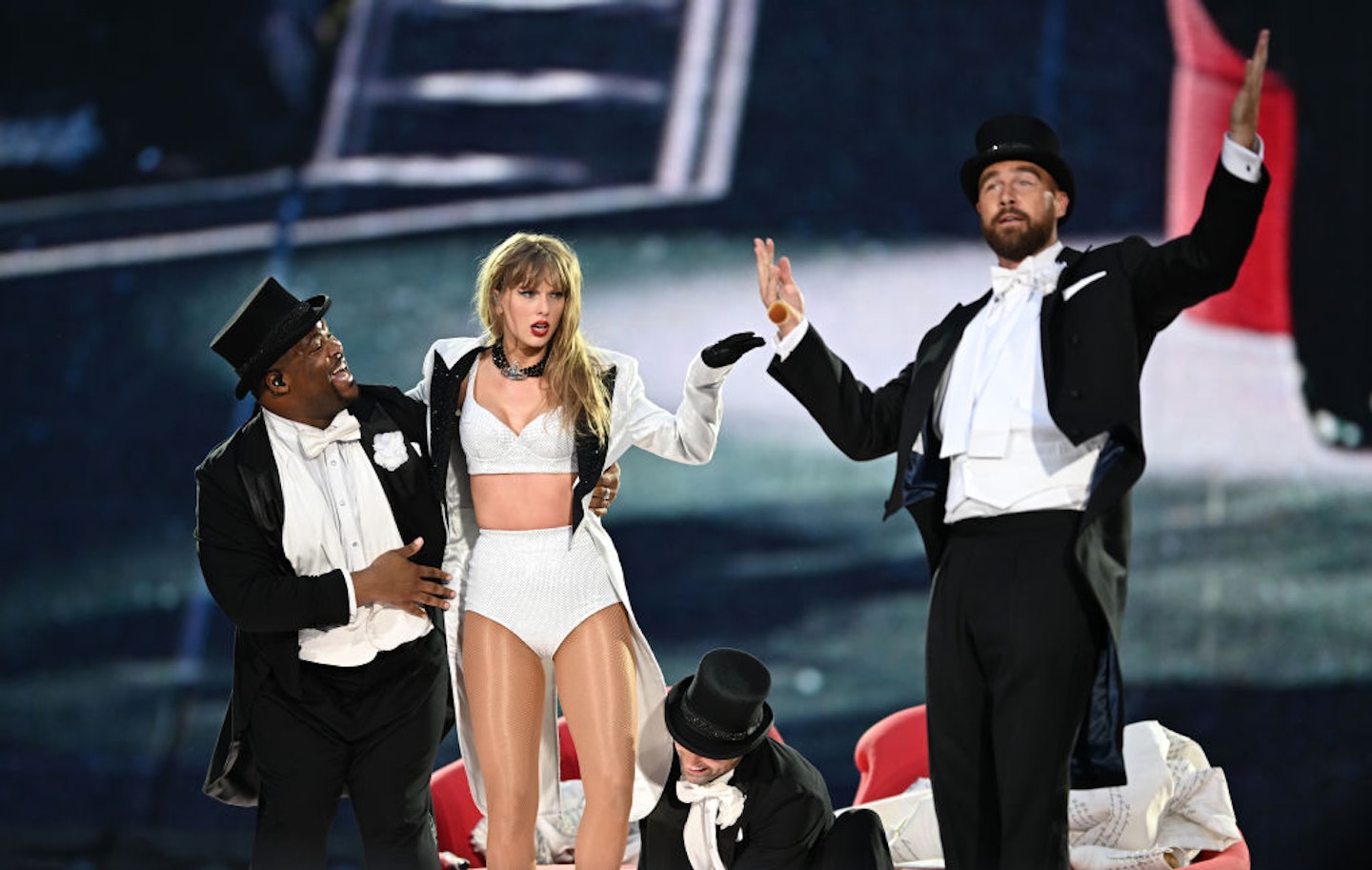‘Who’s afraid of little old me?’ she sings on her latest record
Here are a few things that you could mention when writing about Taylor Swift: her Eras tour is the first to ever gross over $1 billion. She’s beaten two Billboard chart records previously held by the Beatles. She’s recently become the world’s largest contributor to eradicating food poverty per capita. And the V&A has just announced they are hosting an exhibition about her.
But instead, writing in Newsweek, American conservative John Mac Ghlionn chose to focus on Swift’s suitability as a ‘role model’ to ‘our sisters and daughters’ because, ‘at 34, Swift remains unmarried and childless.’ He went on to condemn her dating 12 men ‘in a few years’, asking what message she was sending to young women about ‘stability, commitment, and even love itself.’
There are not enough friendship bracelets in the world to spell out the stunning levels of hypocrisy Swift faces as the world’s biggest pop star but it’s worth mentioning to those unfamiliar with Tayvis that Travis Kelce, Swift’s boyfriend and NFL star, is also 34 and childless, and yet no one seems to be considering locking away their brothers and sons in fear of what will happen if they watch too many games. Commentators reducing Swift to her dating history and using it to both cast moral judgment and generate clickbait is nothing new, and perhaps one the reasons why there is nothing more Swiftian than how she catches criticism with one hand and throws it back out into the universe as a pop masterpiece with the other.
 TAYLOR SWIFT JOINED ON STAGE BY TRAVIS KELCE AT THE ERAS TOUR 2024. ©GETTY
TAYLOR SWIFT JOINED ON STAGE BY TRAVIS KELCE AT THE ERAS TOUR 2024. ©GETTY
Unsurprisingly, the incredible power Swift commands is a threat to certain types of men (Ghlionn has expressed misogynistic views before). The only way to manage this threat seems to be to suggest Swift has failed at a notion of womanhood last acceptable in the 1950s. To define her by her achievements would be to admit that women are far more than their proximity to a man, and can achieve a hell of a lot without them. Swift isn’t the only victim of this sexist drivel; Jennifer Aniston has been derided for her single status for years – but recently said on the matter that she was more than OK with it herself, adding that she didn’t ‘like the idea of sacrificing who you were or what you needed’. Corners of society are still not comfortable with those who usurp the status quo, either by being a woman who doesn’t prioritise men, or, and not unrelated, are stratospherically successful. Ghlion’s words come off like a flurry of paper arrows attempting to take down a giant, one who doesn’t even realise he’s there.
There’s another problem people like Ghlionn have with Swift, that’s not just her marital status or how she’s linked to a host of chiselled-jawed pin-ups, or even that she sings about them in her songs, potentially inviting the suggestion she courts the discussion. Swift disrupts the natural order. Young women are meant to be irrelevant, unserious, and silly. Being mothers and wives will be their greatest achievements. Yet Swift is a shrewd, self-determining cultural sensation, an economic tour de force and a billionaire, whose greatest love story isn’t with a man but with legions of female fans across the globe. Trad wife, she is not.
Swift is, of course, a great role model chiefly because she does things on her own terms, as many young women are choosing to. You’ve only got to look at marriage and birth decline rates to know Swift is part of a generation that is rejecting much of what has come before. ‘Who’s afraid of little old me?’ she sings on her latest record. Men like Ghlionn are terrified.





